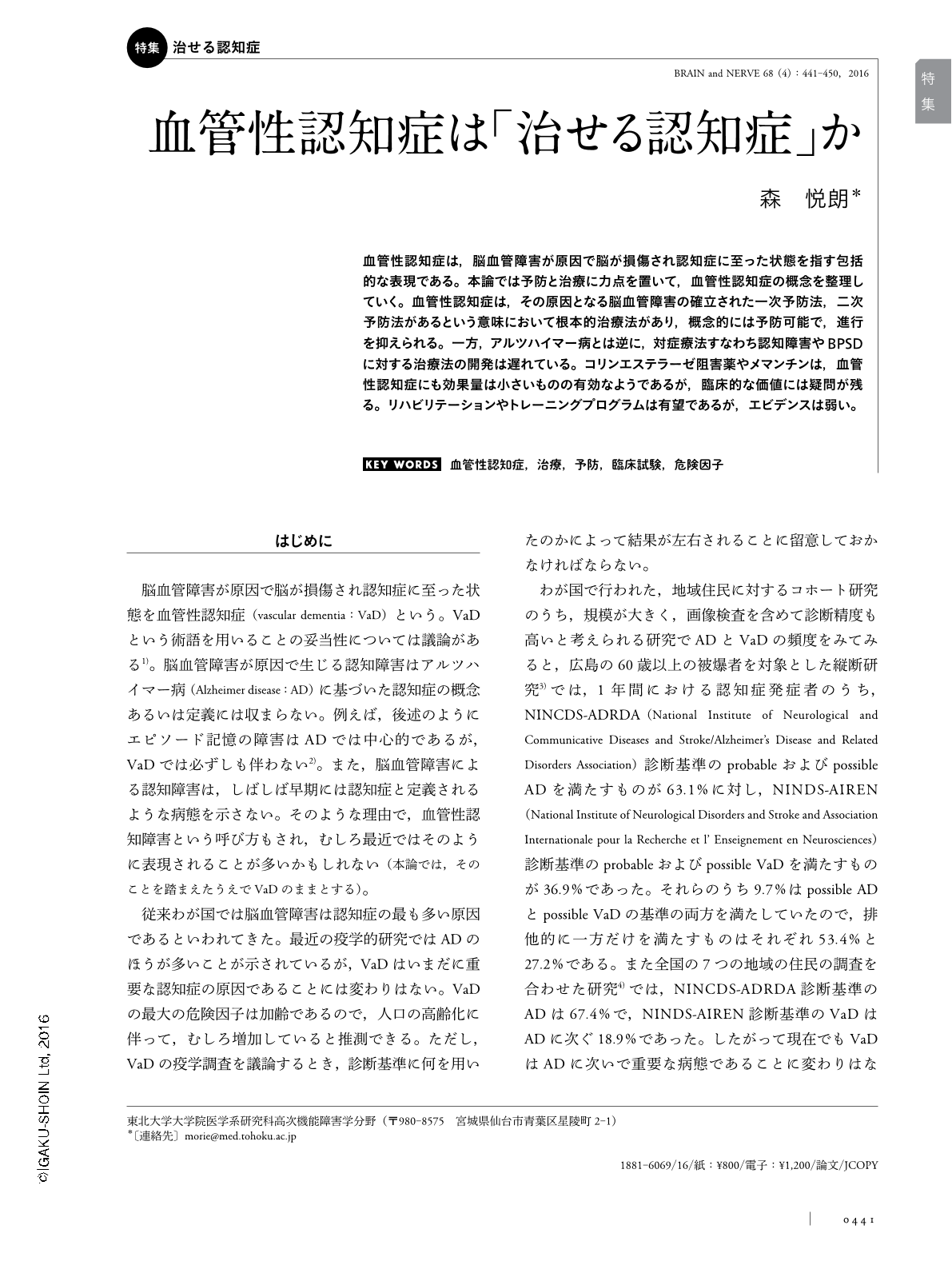Japanese
English
- 有料閲覧
- Abstract 文献概要
- 1ページ目 Look Inside
- 参考文献 Reference
血管性認知症は,脳血管障害が原因で脳が損傷され認知症に至った状態を指す包括的な表現である。本論では予防と治療に力点を置いて,血管性認知症の概念を整理していく。血管性認知症は,その原因となる脳血管障害の確立された一次予防法,二次予防法があるという意味において根本的治療法があり,概念的には予防可能で,進行を抑えられる。一方,アルツハイマー病とは逆に,対症療法すなわち認知障害やBPSDに対する治療法の開発は遅れている。コリンエステラーゼ阻害薬やメマンチンは,血管性認知症にも効果量は小さいものの有効なようであるが,臨床的な価値には疑問が残る。リハビリテーションやトレーニングプログラムは有望であるが,エビデンスは弱い。
Abstract
Vascular dementia is an umbrella term, encompassing the pathological changes in the brain due to cerebrovascular disease that result in dementia. Vascular dementia is the second most common form of dementia, after Alzheimer's disease. In this paper, I outline the concept of vascular dementia, the key aspects of the disease that are yet to be clarified, and the current status of clinical trials. Assessing these factors, I discuss how treatable vascular dementia presently is. Use of the term'vascular dementia'is riddled with uncertainties regarding disease classification, and non-standardized diagnostic criteria. There are difficulties in determining the exact relationship between cerebrovascular pathology and cognitive impairment. The comorbid effects of Alzheimer's pathology in some individuals also present an obstacle to reliable clinical diagnosis, and hinder research into effective management approaches. Vascular dementia is preventable and treatable, as there are established primary and secondary prevention measures for the causative cerebrovascular diseases, such as vascular risk factor intervention, antiplatelet therapy, and anticoagulation, amongst others. However, unlike Alzheimer's disease, there are no established symptomatic treatments for vascular dementia. Clinical trials of cholinesterase inhibitors and memantine indicate that they produce small cognitive benefits in patients with vascular dementia, though the exact clinical significance of these is uncertain. Data are insufficient to support the widespread use of these drugs in vascular dementia. Rehabilitation and physical and cognitive exercise may be beneficial, but evidence of cognitive benefit and relief of neuropsychiatric symptoms due to exercise is lacking.

Copyright © 2016, Igaku-Shoin Ltd. All rights reserved.


